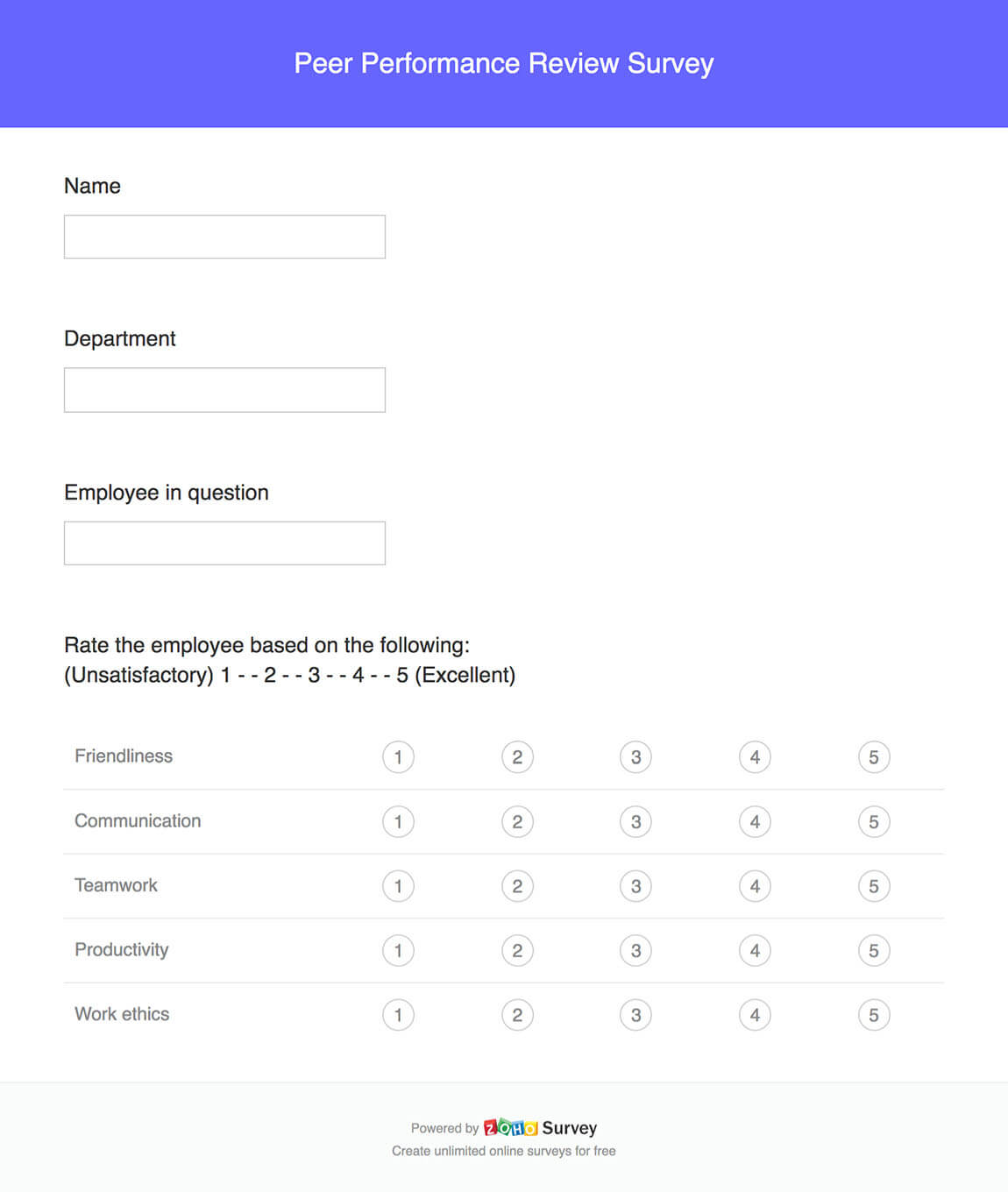Peer Performance Review Survey
An employee's colleagues can often provide a more comprehensive picture of their performance. When giving feedback to your employee, it can be helpful to include feedback from their closest peers as well. Use this expert-designed survey template to learn more about each employee's efforts and contributions in the workplace.
Try this templateHow does a peer performance survey enhance productivity in the workplace?
Insights from colleagues can provide a comprehensive view of an employee's strengths and areas for improvement, promoting accountability and collaboration. Emphasizing the importance of a peer's point of view can also enhance motivation, engagement, and overall performance.
Peer Performance Review Survey
12
2800+
1min
Driving success with collaborative insights
Promote employee development
Peer feedback not only acknowledges accomplishments, but also identifies areas for improvement. A balanced perspective can be instrumental to continuous learning and professional growth. Use comprehensive feedback to guide personalized development plans, promoting a well-rounded skill set.
Strengthen team dynamics
Peer evaluations can lead to stronger bonds within a team. Understanding each other's strengths and areas for improvement helps employees develop empathy and a sense of unity. Teams that regularly engage in peer feedback are often more resilient, adaptable, and capable of navigating challenges together.
Encourage fair and inclusive assessments
Peer evaluations contribute to a more inclusive assessment process. Different perspectives from team members ensure a more balanced and equitable evaluation, reducing biases that may be present in a single-manager assessment. This fosters a sense of fairness and transparency in the evaluation process.
Encourage knowledge sharing and skill transfer
Peer feedback facilitates the sharing of knowledge and skills within a team. It encourages team members to recognize and appreciate each other's expertise, leading to a more collaborative learning environment.
Promote a positive work culture
Regular peer assessments contribute to a positive work culture by fostering a sense of recognition and appreciation among team members. Recognizing each other's contributions helps team members build a supportive and encouraging atmosphere.
Encourage diverse perspectives
Peer assessments brings in diverse viewpoints, allowing for a more comprehensive evaluation. Different team members may have varied experiences and insights, leading to a more well-rounded understanding of an individual's contributions.


